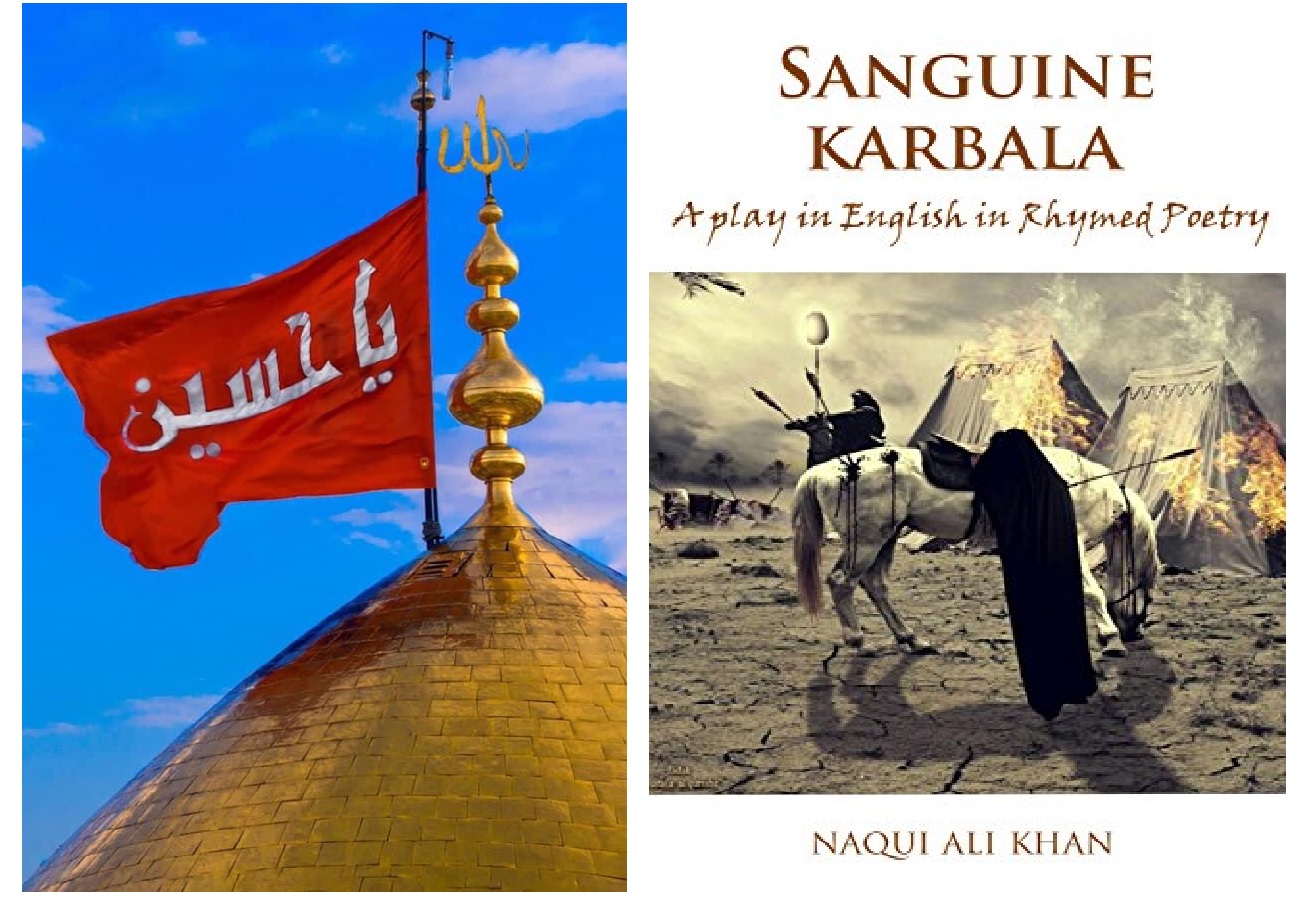By Naqui Khan (Author)
Sanguine Karbala is a play in English in rhymed poetry describing the famous battle of Karbala which took place in 680 AD, in Karbala, in which Imam Hussain, the grandson of the Prophet of Islam and his followers, a small group of about 72 men capable of wielding weapons and defending themselves, were martyred upholding the tenets of Islam and Humanity, by a 40000 strong army (if not more) of the tyrant Omayyad ruler, Yezid ibn Mawiya.
Simply put, the reason for the battle was Imam Hussain's refusal to endorse Yazid ibn Mawiya, a man of flawed, wicked and disreputable character as a legitimate Caliph of the Muslim world.
The battle took place in Karbala on the 10th of October, 680 AD. It lasted only for a day, but left an eternal stamp on the pages of history and is today, easily, the most celebrated martial encounter of all times.
The play is in the form of an eyewitness account of the battle, narrated by a person who happened to be passing through Karbala at the time, to a group of men, arriving at Karbala a few days later. It is a play in three acts and is basically a narrative describing the events of the day of Ashura (the day of Imam Hussain's martyrdom).
Finally, this play is a humble attempt in the English language to convey the universal message of Imam Hussain in a medium enjoyed by millions of readers all over the world.

